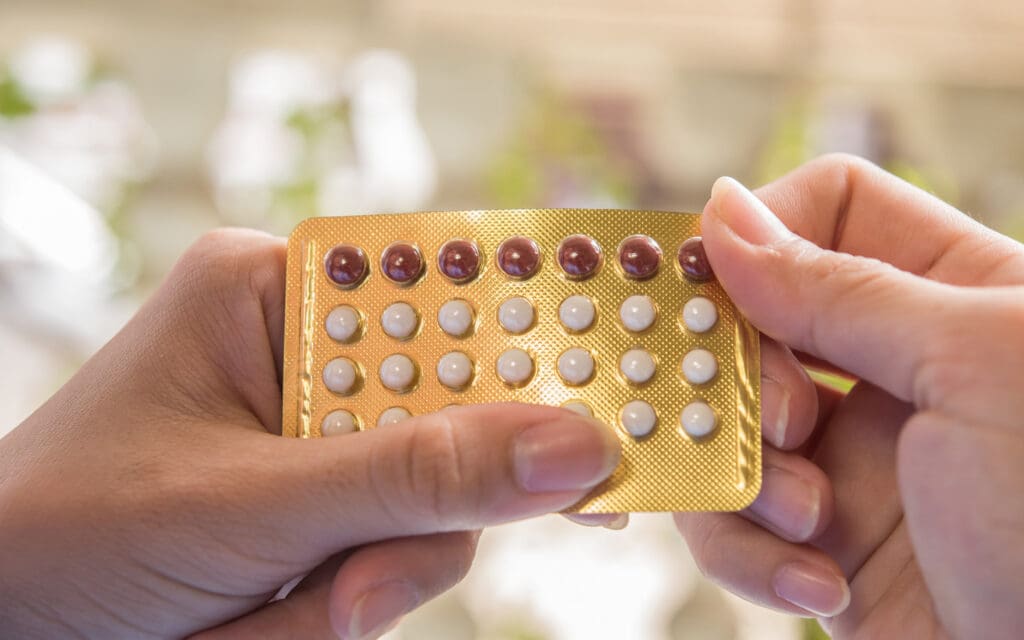Perimenopause is the first stage of menopause and can last much longer than menopause itself. Here are the key things every woman should know about perimenopause, its onset, symptoms, complications, and more.
10. What Is Perimenopause?

Essentially, perimenopause is the first stage of menopause. It is the phase that occurs before your periods stop for good. In this stage, hormonal changes can start subtly, with very slight changes each month. However, although these are small, incremental changes, they can be enough to create noticeable symptoms.
9. Symptoms May Start in Your Early 40s

The average age when periods finally stop for good is within the range of 48 to 52 years of age. However, symptoms can begin occurring much earlier. A lot of women may start to experience subtle changes by the time they reach their early 40s. This can be confusing, with many women not realizing they are entering perimenopause.
8. You Can Be Perimenopausal and Still Have Regular Periods

Women can experience perimenopause symptoms even if they are still having regular periods. This can be confusing, especially if you’re in your early 40s. However, even if you’re having periods, and you notice that you are beginning to experience perimenopausal symptoms, it is possible they could be linked to very subtle hormonal changes.
7. Common Perimenopause Symptoms

Some women will experience regular periods and others will have changes. Period changes are often the first indicator or sign that you’re in the first stage of menopause. Other common perimenopause symptoms include hot flashes, night sweats, anxiety, mood swings, poor sleep, and weight gain or difficulty losing weight. Lifestyle choices can make symptoms worse, such as a poor diet.
6. Perimenopause Can Be Difficult to Diagnose

Perimenopause can be difficult to diagnose because tests, such as a sex hormone test, often will come back inconclusive. Your medical practitioner may disagree, even though you are recognizing changes. Unfortunately, tests only state your hormone levels on that particular day. Hormones can yo-yo, being fine one day, and plummeting the next.
5. You’re Not Menopausal Until Your Periods Have Stopped

The definitive definition for menopause is when your periods have stopped for good. In perimenopause, many women think their periods have stopped, and are surprised when they return in the next month or two. You really can’t determine whether your periods have stopped for good until you haven’t had any for at least 1 to 2 years.
4. Symptoms Can Worsen Just Before a Period

Women already experiencing PMS may find their symptoms tend to become much worse during perimenopause. For example, if you’re bloating or have breast tenderness, these might worsen before a period. Your PMS symptoms may start earlier, 7-10 days before your period. A certain set of symptoms that suddenly appear or worsen could be an indicator of the start of perimenopause.
3. Hormonal Contraceptives Can Complicate Diagnosis

If your doctor is testing your hormones to determine if you are in perimenopause, hormonal contraceptives could make getting an accurate diagnosis more difficult. The reason is that these hormonal contraceptives completely change your hormonal balance. They can create artificial levels of certain hormones depending on the specific contraceptive.
Read More: Can Not Having Kids Make You a Happier Adult?
2. Perimenopause Symptoms Can Be Worse than Menopause

Generally speaking, for a lot of women, the symptoms they experience will be more exaggerated and worse while they are in perimenopause than they will be in menopause. Once your hormones begin to get settled at the time when your periods have completely stopped, that’s when certain symptoms will begin to ease, decrease, or subside and finally bring some relief.
Read More: Let’s Go Girls! Here’s How to Successfully Negotiate at Work
1. Perimenopause Is Different for Every Woman

Doctors know that every human body is different. People have different reactions to the same condition all the time. Likewise, with perimenopause, women won’t experience all of the same symptoms, nor in the same way. Some women may not get hot flashes or night sweats. Perimenopause may be light for one woman and a horrible struggle for another.
Read More: 9 Historical Women Who Changed the Course of History





